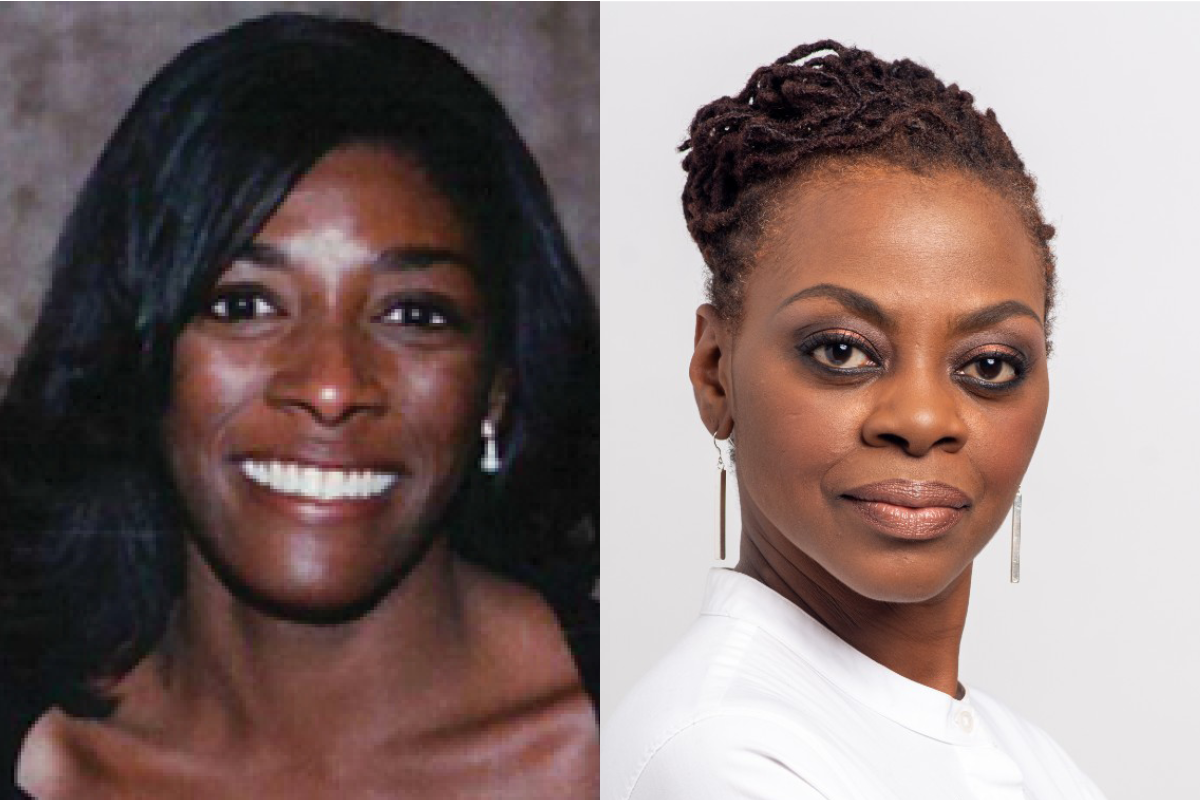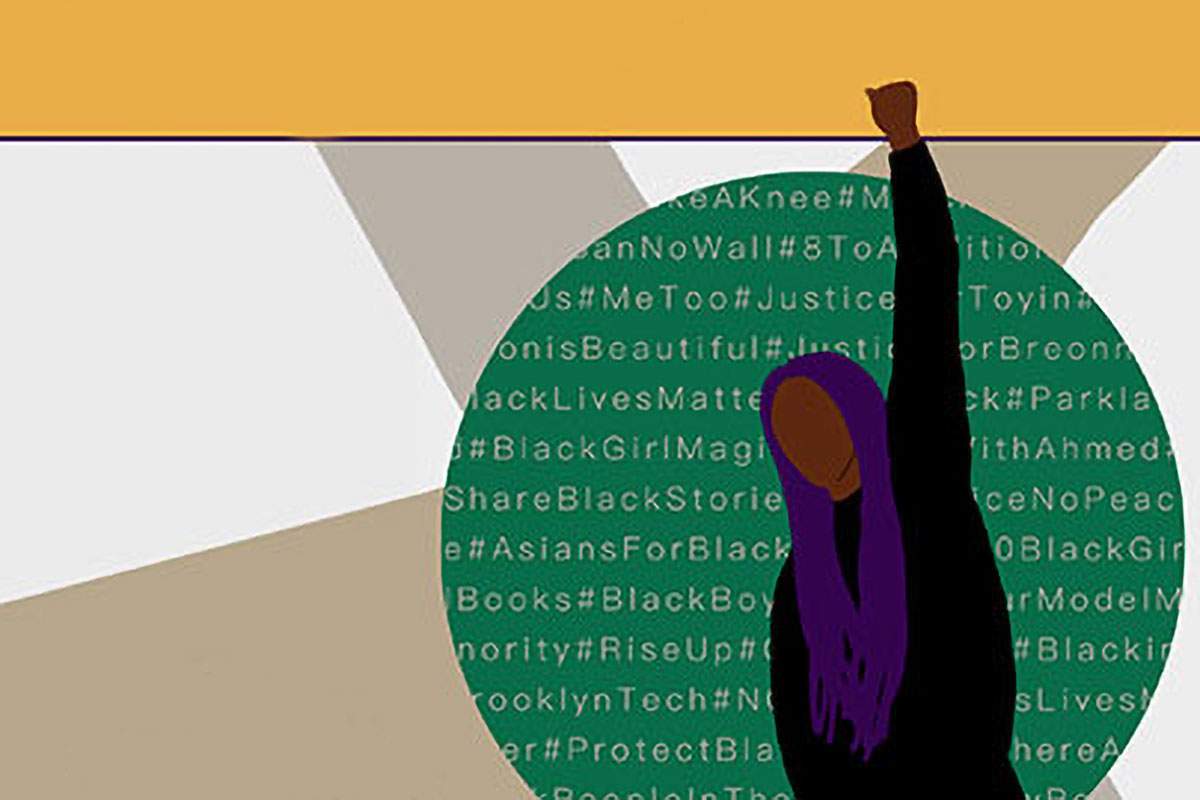As I was walking down the hall of a suburban middle school, I saw a small group of Black female students talking near the entrance. I greeted them and continued toward the office. After a few steps in the opposite direction, I heard one of them say, “She must be a substitute. We don’t ever have no Black teachers in this building.”
Detra Price-Dennis’s memory of one of her early experiences as a public school teacher distills half the rationale for Advancing Racial Literacies in Teacher Education: Activism for Equity in Digital Spaces, the new book by Price-Dennis and Yolanda Sealey-Ruiz that was published this week by Teachers College Press: the gulf in experience, cultural frame of reference, language, and perspective between America’s overwhelmingly White teaching force and a student population that consists predominantly of youth who are BIPOC (Black, indigenous, or people of color).
Advancing Racial Literacies in Teacher Education addresses that gulf by offering ways to honor the knowledge and experience of students of color and engage them through content and issues that they find relevant. In that regard, it builds on other recent works by Teachers College faculty members such as For White Folks Who Teach in the Hood…And the Rest of Y’all, Too: Reality Pedagogy and Urban Education (Race, Education, and Democracy), by Christopher Emdin, Associate Professor of Science Education; Five Practices for Equity-Focused School Leadership, co-authored by Mark Anthony Gooden, Christian Johnson Endeavor Professor in Education Leadership; and Classroom Cultures: Equitable Schooling for Racially Diverse Youth, by Michelle Knight-Manuel, Professor of Education, and alumna Joanne Marciano (Ed.D. ’14), Assistant Professor of Teacher Education at Michigan State University.

But as the authors themselves assert, Advancing Racial Literacies in Teacher Education also responds to the work of Princeton University’s Ruha Benjamin and other scholars who “have made clear arguments in their work about how racism in our society is reflected and manifested through the use of technology.”
[Price-Dennis and Sealey-Ruiz joined a live conversation with Benjamin on May 11, 2021. Click here to view the event, which was hosted by Uncle Bobbie’s Coffee and Books of Philadelphia.]
In arguing for digital literacy as well as racial literacy — or as they put it, by seeking to create “an interdisciplinary conversation that centers race in teaching and learning in a digitally driven world” — Price-Dennis, Associate Professor of Education, and Sealey-Ruiz, Associate Professor of English Education, are taking on up-to-the minute manifestations of racism in students’ lives. These include the wave of police killings of unarmed Black Americans that has garnered worldwide attention during the past year past year and longstanding inequities, such as access to the internet, computers and other learning technologies, that have been magnified by the COVID-19 pandemic.
Ultimately, the book “questions assumptions that underlie the very ‘idea’ of race,” writes Jabari Mahiri, author of Deconstructing Race: Multicultural Education Beyond the Color-Bind, in his forward. “The authors indicate that race is not a scientific fact; yet engage it as a social fact with devastating consequences for those at the bottom of racial hierarchies. They illustrate how digital tools deepen racial hierarchies and increase social control.”
Teachers who are able to engage their students successfully in the topic of race are most effective when they have engaged in self-exploration and honest assessments of their role in perpetuating racist ideas.
— Detra Price-Dennis and Yolanda Sealey-Ruiz in Advancing Racial Literacies in Teacher Education: Activism for Equity in Digital Spaces
In their own introduction to Advancing Racial Literacies in Teacher Education, Price-Dennis and Sealey-Ruiz cite Martin Luther King’s assertion that “a riot is the language of the unheard” — or, in their words, “a way that marginalized groups resist infractions on their civil rights.” They situate teaching and learning “in a time where digital spaces have transformed the method by which citizens protest and speak back to the social injustices they witness in society.” Students, they argue, stand “at the forefront of these activist literacy practices,” which include #Parkland; #SanteFe; #1000Blackgirlbooks; #IStandwithAhmed; #NationalSchoolWalkout; #blackinbrooklyntech.
The resulting “merging [of] social action with social media in school spaces” reflects the reality that “kids are living through racism and oppression, and they want the tools to deal with it,” said Price-Dennis, and means that “digital literacy can’t just be part of the curriculum — it is the curriculum,” said Sealey-Ruiz, when both authors were interviewed earlier this spring.
“Teachers need to do work around their own racial and digital literacy,” Sealey-Ruiz said. “They can’t afford to say, ‘I’m not technology-oriented.’ You may not be as quick as your students, but you have to build this literacy, because not only are students using technology every day, they’re learning about racial issues and becoming engaged in them though online spaces such as #BLM.”
Price-Dennis and Sealey-Ruiz ultimately argue that “aspects of the #BLM movement have inspired a conversation and a syllabus that can be featured in teacher education program courses to both teach about the movement and engage teacher education students with literacy around digital activism.” (Sealey-Ruiz and alumnus Shamari Reid taught just such a course at TC this past spring: “Politics of Teaching English: Black Lives Matter: A Multimodal Exploration.”)
But that recommendation is only part of a book that is at once a detailed “how to” for recasting teacher education and a guide for conducting what Sealey-Ruiz has termed “the archaeology of the self” — a process in which educators examine their own biases and attitudes.
Advancing Racial Literacies in Teacher Education is structured around four extended chapters. The first, “Engaging and Embracing Racial Literacy in Teacher Education,” offers examples of how racial literacy can be fostered in teacher education. It includes a series of questions designed to help administrators and faculty assess the status of race in their programs and in K–12 education.
The second chapter, “How Can Racial Literacy Inform Teacher Education in the Digital Age?”, is designed to enable teachers to “ensure that students are able to recognize, respond to, and counter racism, regardless of whether the interactions are face-to-face or in virtual spaces.” Teachers must be “prepared and skilled to talk about the material, social, emotional, cognitive, economic, and political manifestations that stem from structural racism in the classroom,” Price-Dennis and Sealey-Ruiz write, and also able to “move beyond their own biases to reimagine the work that is required of them to develop their racial literacy.”
Technology is not colorblind or race-neutral. Every device, platform, app, or software we use in our society was created by human beings who brought their understanding of humanity and race to their work.
— Detra Price-Dennis and Yolanda Sealey-Ruiz in Advancing Racial Literacies in Teacher Education: Activism for Equity in Digital Spaces
In the third chapter, “Institutionalizing Racial Literacy in Teacher Education,” the authors offer examples of racial literacy in action within a teacher education program and high school classroom in which “teachers and students together [to] embark on a journey toward racial literacy development.”
In one high school English classroom “consisting exclusively of boys of color,” developing racial literacy is “standard practice” for the teacher and her students.” In “Dear Teacher” letters they are asked to write about issues of race in the school, the young men said they felt “invisible at times yet hyper-visible” at others, and also shared “a desire for their teachers to have higher expectations of them.
Chapter 4, Engaging in Critical Multimodal Curation to Foster Racial Literacy, the authors simultaneously assert “that injustice and racism have been built into the education system” while arguing that “it is the education system that offers the most promising space to dismantle what [psychologist Beverly Daniel] Tatum talked about when she referred to the ‘smog’ of racism that we all live with and breathe in.”
In particular, the chapter describes teaching based on the principles of a framework called Racial Literacy for Activism (#RL4A), highlighting multimodal learning experiences that “examine racism through the collection.”
Both Price-Dennis and Sealey-Ruiz have been prominent voices on the topics of race and technology in education, and particularly so since the onset of the pandemic.
A teacher education program that fosters racial literacy must provide spaces for teachers to talk about their fears and uncertainties in embracing this type of theory and practice.
— Detra Price-Dennis and Yolanda Sealey-Ruiz in Advancing Racial Literacies in Teacher Education: Activism for Equity in Digital Spaces
Price-Dennis is Co-Director of Online Advanced Certificate Program of TC’s Reimagining Education Summer Institute and Founding Director of #JustLit, a project that provides multimodal media resources about literature and equity in education. The 2017 recipient of the National Council of Teachers of English (NCTE) Janet Emig Award for her article “Developing Curriculum to Support Black Girls’ Literacies in Digital Spaces,” Price-Dennis, a former elementary school teacher, has developed and taught a course during the pandemic called “Digital Learning for the K–8 Classroom” through TC’s Continuing Professional Studies platform, and covered the same ground in webinars for Columbia University’s Global Centers. In spring 2020, she appeared on a virtual town hall panel about public education in New York City, led by Manhattan Borough President Gale Brewer, at which she called for teachers to “focus on the learner, not the tool” and cautioned parents that “there isn’t going to be a one-size fits all solution.” Since then, she has also hosted weekly Member Gatherings for the 35,000-member NCTE, in which teachers nationwide meet online to share ideas and build fellowship.
Sealey-Ruiz is the founder and leader of The Racial Literacy Project, established at TC in 2016 to expand on the Racial Literacy Roundtable Series, which Sealey-Ruiz created in 2009. She was the recipient of the 2018 Revolutionary Mentor Award of AERA’s Critical Educators for Social Justice (CESJ) Special Interest Group (SIG), and recently was named a Student Experience Research Network (SERN) Midcareer Fellow. Sealey-Ruiz has also served as a faculty advisor to Teacher Opportunity Corps II (TOC) program, a TC program funded by the New York State Education Department that is designed to increase the number of New York State teachers from underrepresented backgrounds. Sealey Ruiz, who also is the author of Love from the Vortex, a volume of poetry, has conducted professional development workshops in which in-service teachers, school leaders, community college educators and others undertake an “archaeology of the self” — a process of “digging deep and peeling back layers” to understand their own racial beliefs and practices so that they can teach their students to do the same.
Teaching is being open to other people’s stories. But you have to know your own story. If you’re not aware of who you are and what you bring to the classroom, and if you don’t think deeply about how issues of race, gender, class and religion live inside of you, you will just exact harm.
— Yolanda Sealey-Ruiz
In a recent brief written for the National Council of Teachers of English (part of a series that explores key issues that affect literacy educators and their students and offer student-centered policy recommendations) “Racial Literacy,” Sealey-Ruiz addresses what others have termed a “pedagogy of discomfort” — the uneasiness and avoidance displayed by many White preservice teachers in urban schools when teaching students of color — particularly male students of color.
“Teaching is being open to other people’s stories,” she says. “But you have to know your own story. If you’re not aware of who you are and what you bring to the classroom, and if you don’t think deeply about how issues of race, gender, class and religion live inside of you, you will just exact harm.”
